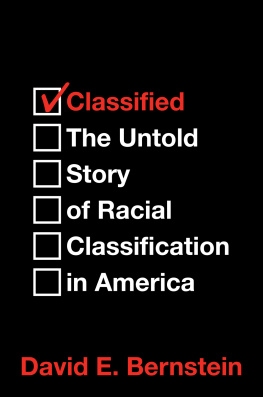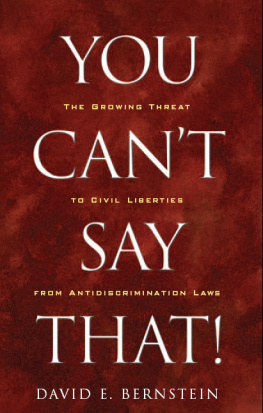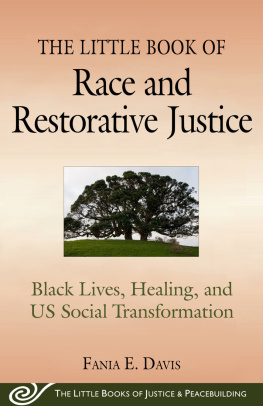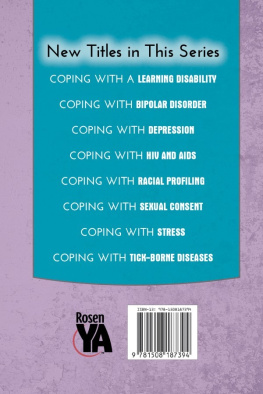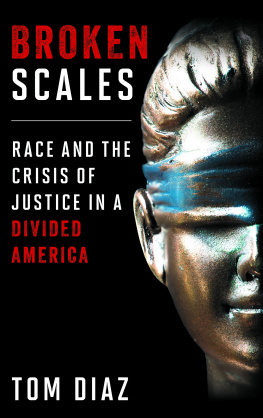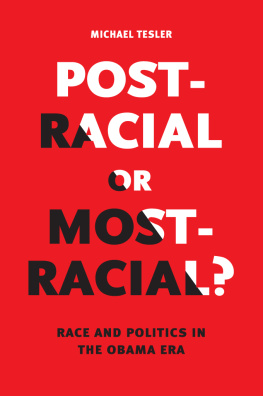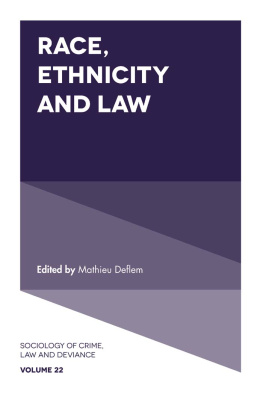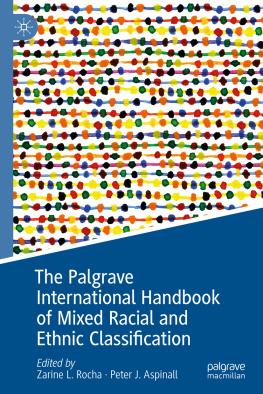Contents
Guide
Advance Praise for Classified
The nation urgently needs what David E. Bernstein here provides: a lucid explanation of the long and tangled intersection of racial classifications and the law. With the intellectual boldness and clarity that he brought to Rehabilitating Lochner, he points to a path from todays tensions to a less angry, more sophisticated future.
George F. Will, Washington Post
A thorough, careful, magisterial work on a subject thats both of great practical and great theoretical importance in modern American law; highly recommended.
Eugene Volokh, Gary T. Schwartz Distinguished Professor of Law, UCLA School of Law
Chief Justice John Roberts has called our racial sorting system a sordid business. In Classified, David Bernstein provides the sordid details. What began as a government effort to combat discrimination now serves mainly to advance political agendas and stoke racial resentment. Well-researched and clearly written, Classified explains how we got into this mess and why a rethinking of official racial and ethnic categories is long overdue.
Jason L. Riley, Wall Street Journal columnist, and author of Maverick: A Biography of Thomas Sowell
David E. Bernsteins excellent bookClassified: The Untold Story of Racial Classification in Americaexposes the full extent of what we all should have known: When governments dispense benefits based on race and ethnicity, the conflict over which groups should receive those benefits and which individuals qualify as members of those groups will be never-ending.
Gail Heriot, Professor of Law, University of San Diego, and member, U.S. Commission on Civil Rights
David Bernstein has written an illuminating, thoughtful, and often troubling book about the history of racial classifications in American law. This history underscores the validity of Oliver Wendell Holmess dictum that experience, rather than logic, dictates the actual development of law, for Bernstein demonstrates the extent to which the adoption of racial (or, more commonly ethnic) classifications has been responsive far more to systematic political pressures rather than the application of a coherent overarching theory. Even (or especially) supporters of affirmative action, as I ambivalently continue to be, will benefit enormously from confronting the material that Bernstein carefully presents. It truly deserves a wide readership and, just as importantly, respectful discussion.
Sanford Levinson, W. St. John Garwood and W. St. John Garwood, Jr. Centennial Chair, University of Texas Law School, and author of Wrestling with Diversity
We mock the racial-classifications schemes of the Jim Crow south, of Nazi Germany, and of Apartheid South Africa. But as David Bernstein ably demonstrates, our own racial classification system is just as risible, and no more scientific.
Glenn Reynolds, Beauchamp Brogan Distinguished Professor of Law, University of Tennessee, founder of Instapundit.com
David E. Bernstein proves ably and conclusively that the familiar legal classifications for racial and ethnic groups used by the federal and state governments, census-takers, medical regulators, racial-preference dispensers, and others are arbitrary to an extreme.
Stuart Taylor, contributing editor, National Journal , and coauthor, Mismatch: How Affirmative Action Hurts Students Its Intended to Help, and Why Universities Wont Admit It
Published by Bombardier Books
An Imprint of Post Hill Press
ISBN: 978-1-63758-173-5
ISBN (eBook): 978-1-63758-174-2
Classified:
The Untold Story of Racial Classification in America
2022 by David E. Bernstein
All Rights Reserved
Cover Design by Matt Margolis
Interior Design by Yoni Limor
No part of this book may be reproduced, stored in a retrieval system, or transmitted by any means without the written permission of the author and publisher.

Post Hill Press
New York Nashville
posthillpress.com
Published in the United States of America
For Natalie, Eden, and Ben
O fficial American racial and ethnic classifications are arbitrary and inconsistent, both in how they are defined and how they are enforced. The categories are socially constructed and historically contingent. They evolved from older racist categories and have barely been updated since the 1970s.
Consider the governments official Asian American classification. This classification derives from a racist category used before the modern civil rights era to exclude those classified as Asian from immigration and citizenship. People in the Asian American category are extremely diverse in appearance, culture, religion, and ancestry. Asian American includes people with ancestry anywhere from Pakistan to Indonesia and Japan but excludes all people of western Asian origin. Most people who come within the Asian American category do not identify with that label. Nevertheless, they are classified as if they are part of a monolithic group.
This has real-world consequences. Kao Lee Yang, a Hmong American neuroscience PhD student, was recently nominated for a prestigious fellowship for students who are members of groups historically excluded from and underrepresented in science. The fellowship committee determined that because Yang is Asian American, she is not a member of an underrepresented group. The committee therefore refused to even consider her application.
Yang took to Twitter to vent: While some Asian Americans are academically successful, others like the Hmong are underrepresented in STEM and academia in generalname me just one Hmong American woman you know who is a neuroscientist. She added, I am an example of the consequences resulting from the continued practice of grouping people with East/Southeast/South Asian heritages underneath the Asian American umbrella.
Yang blamed her predicament on the model minority myth that Asian Americans are all successful. Her ire would have been better targeted at the federal Department of Education. For over forty years, its Office of Civil Rights has required educational institutions to collect and report demographic data about Asian Americans, with no differentiation among the many national origin groups. The educational establishment, in turn, has grown accustomed to treating Asian Americans as a uniform racial group.
Americas official racial and ethnic classifications can be particularly troublesome for people who immigrate to the United States from other countries, where Americas unique system of racial and ethnic classification is unknown. My wife, for example, is an olive-complexioned American citizen born and raised in Israel. She is of Sephardic and Iraqi Jewish descent. She does not think of herself in American racial terms. Instead, she considers herself to be Jewish, Sephardia (Sephardic), and Mizrahit (Middle Eastern). None of these categories is recognized by the US government, and none is available to check on forms.
I recently helped a native of Peru of mixed Spanish and indigenous origin apply for a green card. She was mystified by the form asking her to classify herself by one of the standard American racial categories. None of the racial options fit how she perceived herself. The American Indian category on the form, which might otherwise have covered her Inca ancestry, is limited to North American Indians.

